[ad_1]
Bangladesh, Pakistan, Indonesia and India will vote – in that order – for a collage of principally aged incumbents, would-be autocrats, dynasts and veteran political schemers.
All of them, in several methods, have used the courts to “adjust things” of their favour, relegating lofty democratic beliefs, ‘change’ narratives and considerations for better civil liberties behind outmanoeuvring opponents and silencing critics.
Ballot power: 2024 elections could steer global relations for years to come
Ballot power: 2024 elections could steer global relations for years to come
The guarantees they’ve made pivot on the secure stewardship of vastly unequal economies, or faucet deep nationalist feelings and identification politics.
As a outcome, 2024 is on observe to be one other milestone yr for the rise of intolerant democracy, in accordance with rights advocates.
The march of dictatorships is deepening throughout the area
“So-called democracy in Asia without rights is all about deepening ruling elites’ impunity to do whatever they want,” mentioned Phil Robertson, deputy director of Human Rights Watch’s Asia division. “With democratic challenges to power being eliminated by hook or by crook … the march of dictatorships is deepening across the region.”
Beijing regards the self-ruled island as a breakaway province to be introduced beneath mainland management – by pressure, if obligatory. Many international locations, together with the US, don’t formally recognise Taiwan as an unbiased state however oppose the usage of pressure to vary the established order.
Beijing urges Taiwan to ‘stand on right side of history’ ahead of elections
Beijing urges Taiwan to ‘stand on right side of history’ ahead of elections
When the spoils of democracy in 2024 are divided up, more than likely amongst aged leaders representing the political institution, many could also be left questioning who Asia went to the polls for.
Modi’s potent spell
Over tiny cups of steaming masala chai, a gaggle of flower sellers in south Delhi mentioned Modi’s enduring reward was making Indians consider sooner or later after a long time within the doldrums.
“My village in Bihar used to get electricity from 8am to 6pm. Now it’s 24/7,” mentioned Sushil Kumar, perched on a bike, of his birthplace in India’s poorest state. “To make a cup of tea, women had to collect firewood first and then choked on the smoke. Now they make tea in a jiffy with cooking gas. No politician ever gave us these things before.”
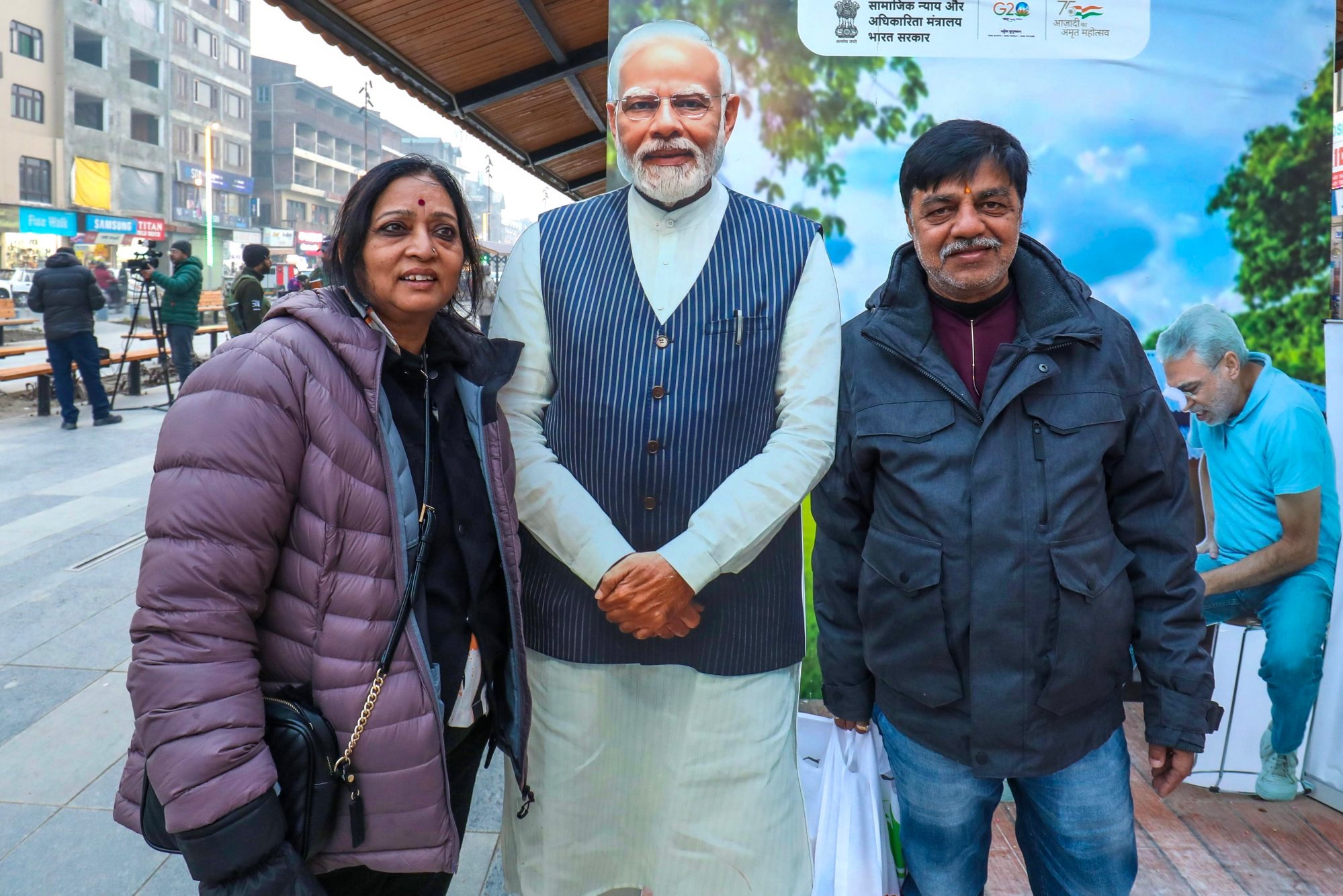
Citing the brand new roads reaching distant villages, meals and money handouts, houses constructed with authorities cash, improved electrical energy connectivity and piped water – in the end – into their rural houses, the buddies had been adamant that Modi nonetheless instructions the loyalty of India.
“Who else is as capable as he is? As untiring as he is?” requested Jasvinder Solanki, a mortgage restoration agent and pal of Kumar.
Modi’s authorities has additionally wielded sedition and sweeping safety legal guidelines at dissenters, rival politicians and any crucial media, imposing greater than 700 web shutdowns – essentially the most on Earth – since coming to energy in 2014, as political assaults on the prime minister develop into more and more laborious to unpick from assaults on the nation.
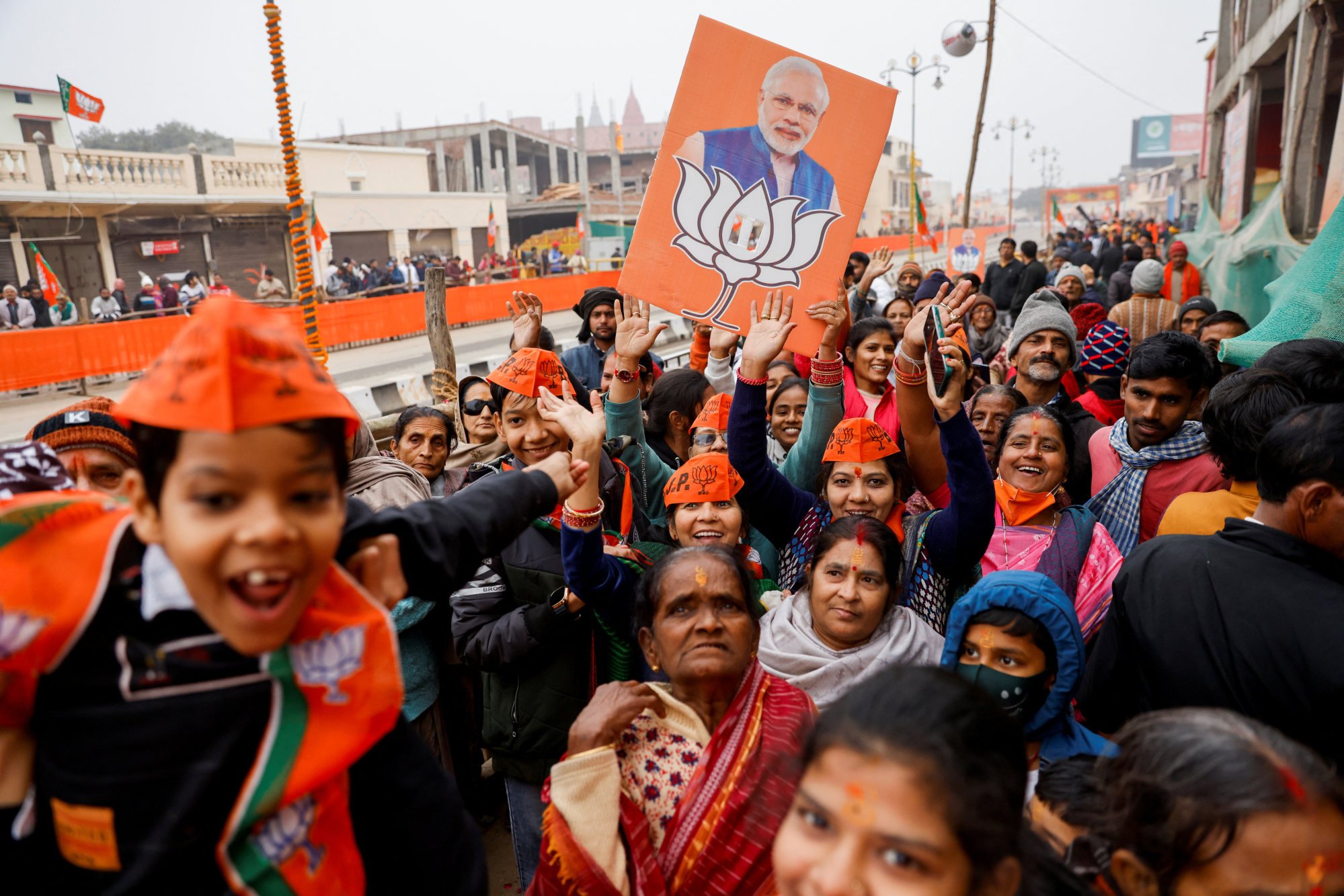
The temple is a key subject of religion within the ‘Hindi belt’ states of northern India: Bihar, Uttar Pradesh, Madhya Pradesh, Rajasthan and Haryana, house to round 450 million individuals.
“There is no doubt that the BJP will flaunt the temple as one of its major achievements in the election,” mentioned political analyst Parsa Venkateshwar Rao Jnr.
In India, Modi’s party stirs up Hindu nationalism with temple at disputed site
In India, Modi’s party stirs up Hindu nationalism with temple at disputed site
This yr’s election in April and May is not going to convey a clear sweep for the BJP, as southern India and Punjab are but to fall beneath Modi’s spell. But the principle rival Congress social gathering’s opposition has been anaemic, with it failing to unite the nation round a binding message or capitalise on the assault on long-held freedoms.
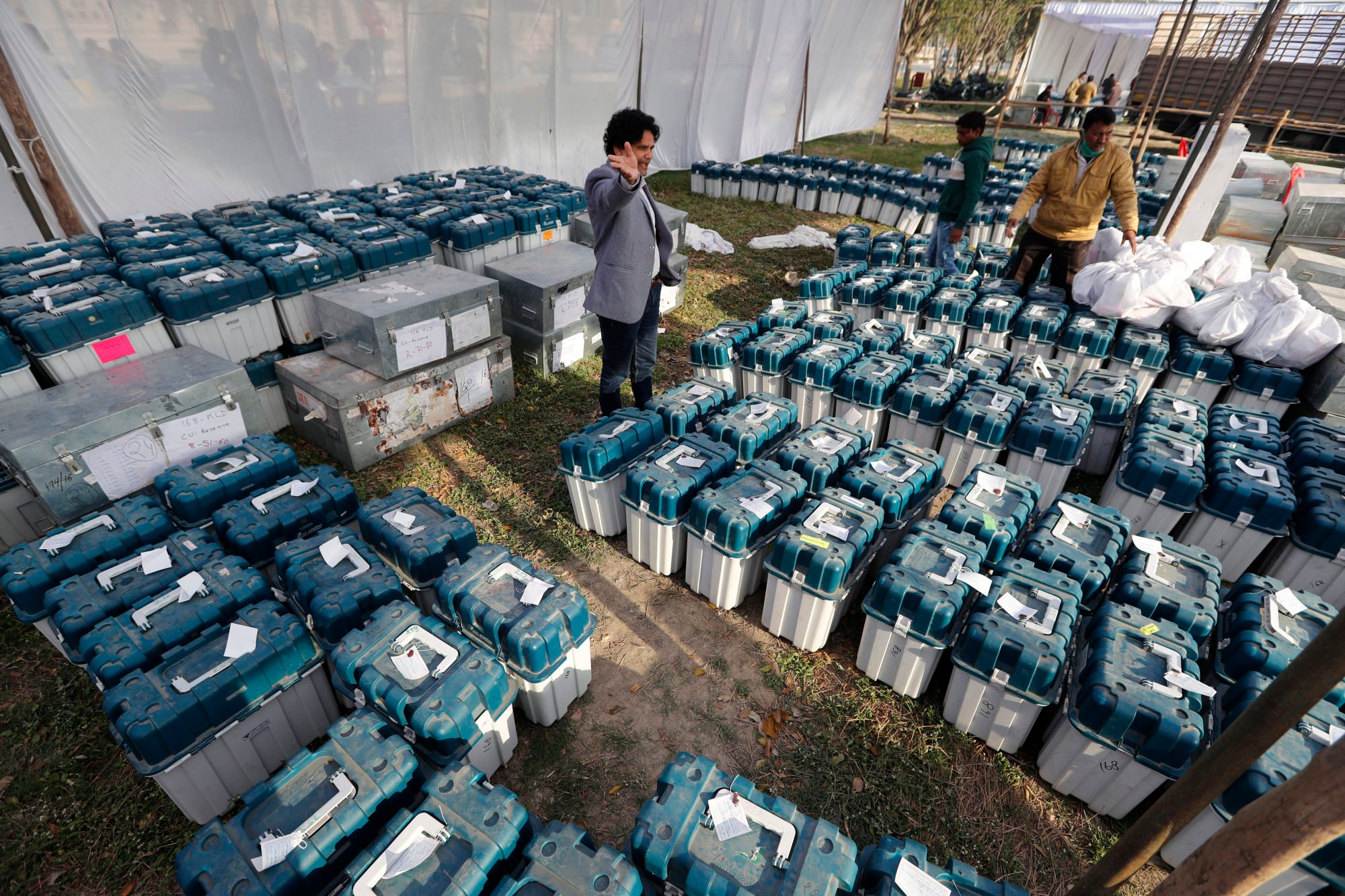
Poll officers will trek on foot to succeed in distant deserts, the deepest forests, highest mountain peaks and most remoted islands to make sure each poll is taken.
And, as at every election, a polling sales space must be arrange in Gir Forest National Park in Gujarat for one lone Hindu priest who lives among the many lions to forged his vote.
“Every election is a festival of colour, drama and noise as voters exercise their franchise,” mentioned political analyst Neerja Chowdhury. “For all the fault lines that exist, elections are the heartbeat of India’s democracy.”
Tilting the enjoying area
The ex-cricketer and former prime minister stays the darling of swathes of the aspirational city center class – in addition to younger voters – regardless of hitting 71 final yr.
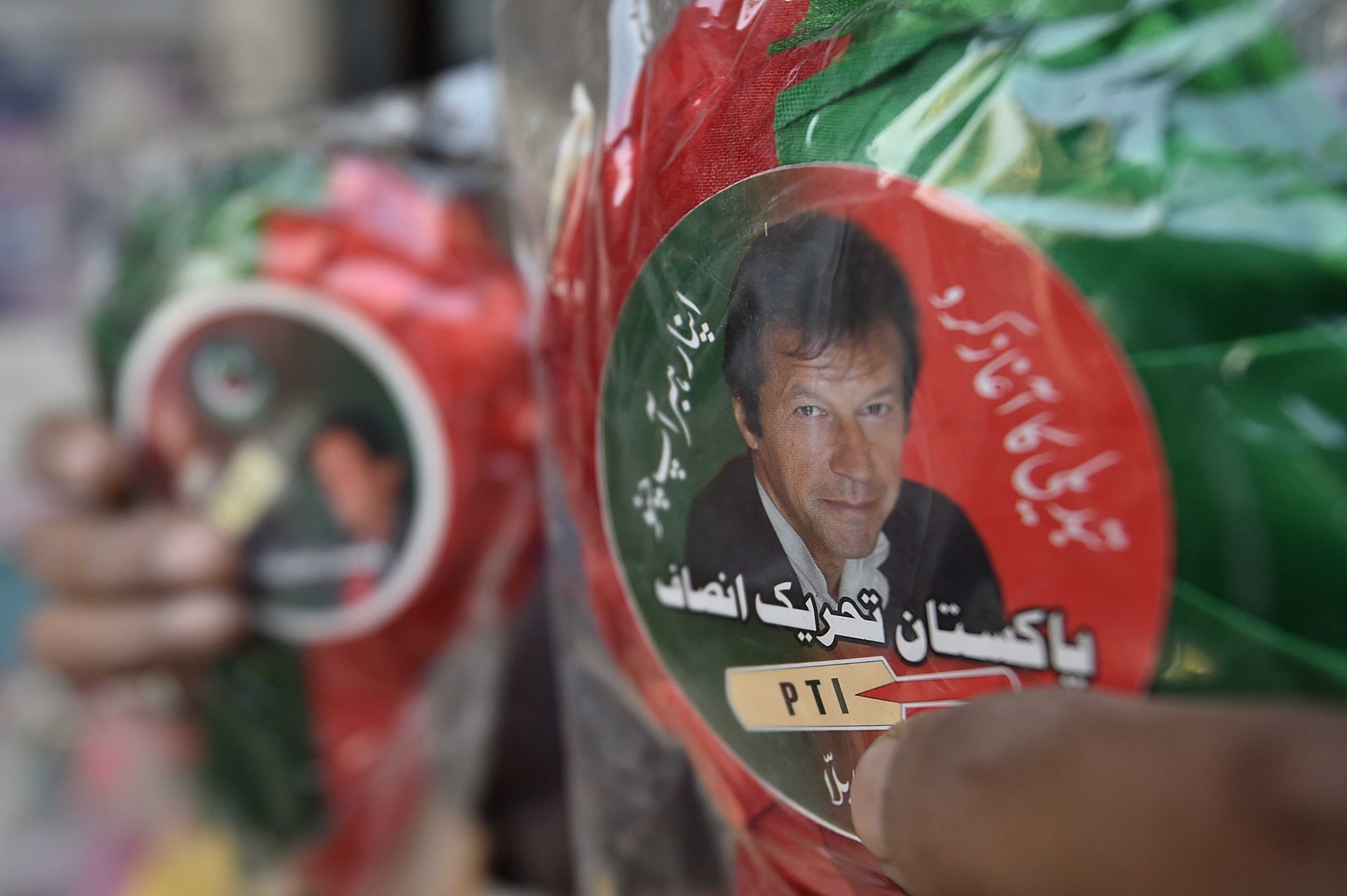
The Election Commission of Pakistan “seems to be effectively remote-controlled by the uniformed rulers”, mentioned Afrasiab Khattak, a Pashtun nationalist politician and former senator from northwest Khyber-Pakhtunkhwa province, a PTI stronghold.
Sharif, a businessman and veteran survivor of Pakistan’s bear-pit politics, was himself faraway from workplace in 2017, jailed and prevented by the army and judiciary from contesting the 2018 normal election in order to make sure the PTI’s victory.
As Pakistan hurtle from crisis to crisis, military intervention rears its ugly head
As Pakistan hurtle from crisis to crisis, military intervention rears its ugly head
The breaking level got here when the ex-cricketer tried to stop the substitute of a former chief of Inter-Services Intelligence, the Pakistan army’s feared spy company, who was seen as pro-PTI.
Despite the PML-N’s prospects of rising as the most important social gathering within the February 8 polls, it has grown more and more involved in regards to the fragile state of the nation it is going to be left to manipulate if elected.
Pakistan is experiencing “acute political polarisation, exacerbated by a particularly nasty confrontation between the opposition and the military and its supporters, along with a severe economic crisis and a resurgence in terrorism”, mentioned Michael Kugelman, director of the South Asia Institute on the Wilson Centre, a Washington suppose tank.
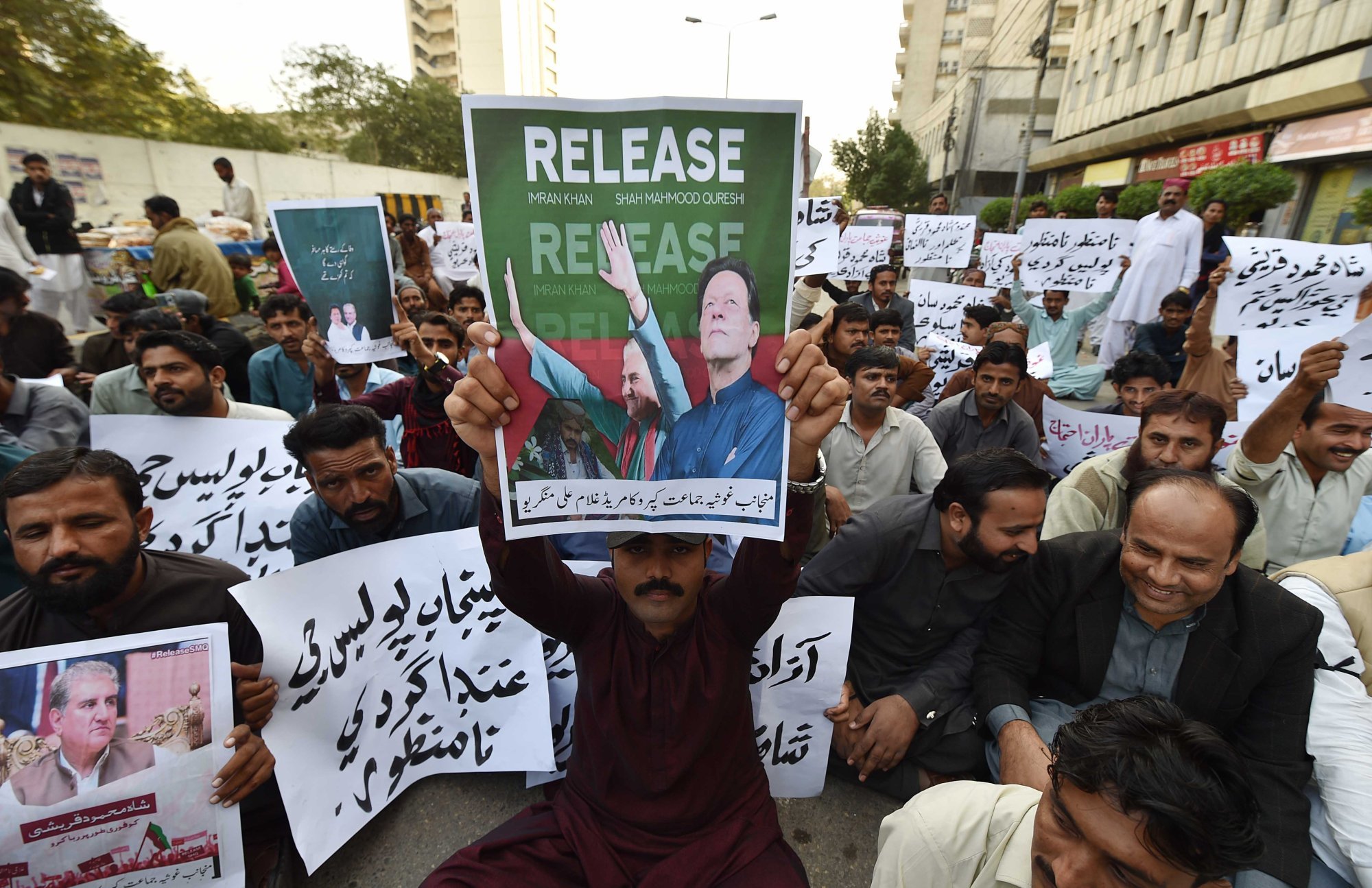
“There are also deep levels of disillusionment coursing through society, and mistrust towards political leaders and institutions is soaring,” he informed This Week In Asia.
Another urgent subject is the query of who youthful voters will get behind in Khan’s absence – an unknown that specialists say might stump the polls’ back-room planners.
More than 45 per cent of Pakistan’s 127 million eligible voters are youthful than 35 and Khan stays vastly well-liked with the cohort, who might but forestall a PML-N victory in its outdated stamping floor of populous jap Punjab province, which incorporates greater than half of the National Assembly’s constituencies.
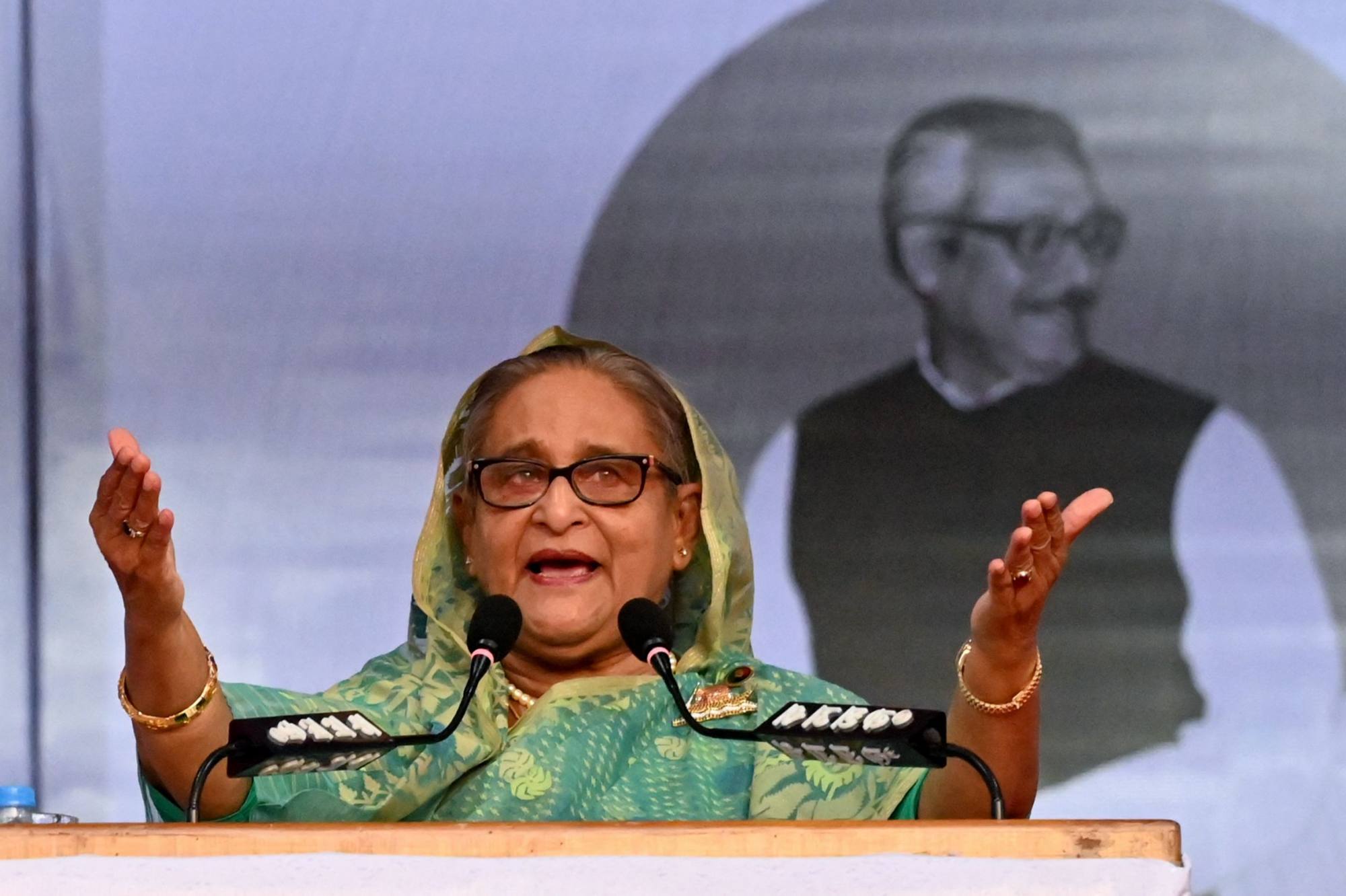
The highway to autocracy?
The nation’s roughly 170 million individuals – nearly one-third of them aged 18 to 30 – bemoan the nation’s carousel of instability and repression, with Sunday’s ballot more likely to convey extra of the identical within the absence of an actual alternative.
Bangladesh arrests more opposition leaders as PM rejects dialogue
Bangladesh arrests more opposition leaders as PM rejects dialogue
“Bangladesh is approaching another sham election,” exiled opposition chief Tarique Rahman informed Agence France-Presse on Thursday. “Participating in an election under Hasina, against the aspirations of the Bangladeshi people, would undermine the sacrifices of those who fought, shed blood and gave their lives for democracy.”
His mom Khaleda Zia, a two-time prime minister from the nation’s rival political dynasty, is beneath efficient home arrest for what the opposition says are manufactured corruption prices. The military has been deployed throughout the nation prematurely of Sunday’s election, in an illustration of the febrile political second. Experts say a low turnout might end in extra political chaos over the approaching months as an unpopular authorities faces a restive and poor inhabitants weak to financial shocks.
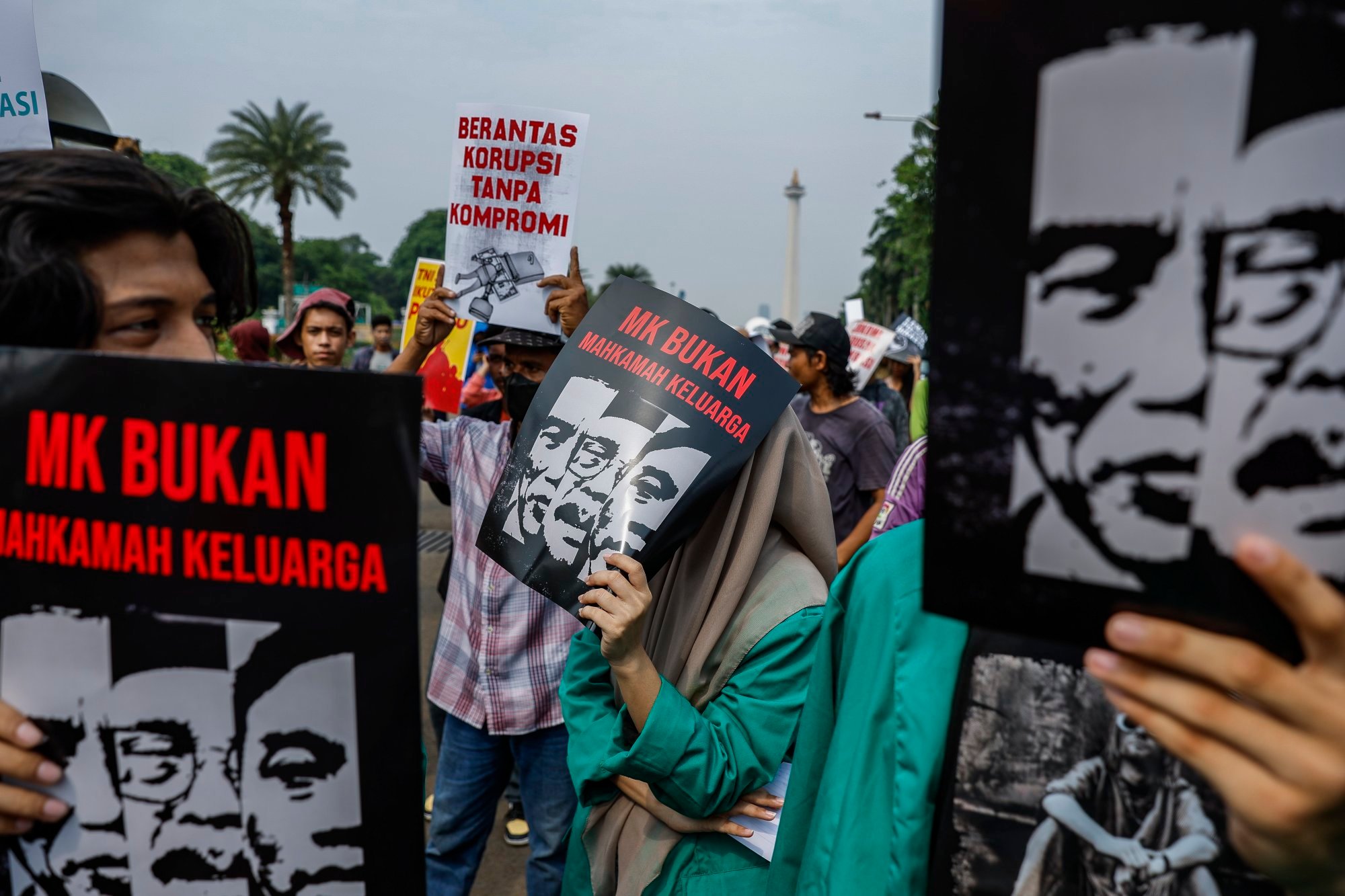
A brand new dynasty rises
After almost a decade in energy, Indonesia’s Widodo is in his ultimate months as president. Elections from February 14 will begin the method of discovering a substitute for the nation’s immensely well-liked chief, who was as soon as seen as a clear broom in a world of political insiders.
But Jokowi, the pro-poor everyman who spun his backstory as a furnishings salesman right into a poll-winning model as an incorruptible, anti-establishment figurehead, seems decided to not fade away.
Instead, critics say he’s making an attempt to carve out a brand new political dynasty to maintain a foothold on the earth’s fourth most populous nation and Southeast Asia’s largest financial system.
Things appear to have regressed … we’ve the established democratic establishment, we’ve the constitutional court docket, however these are being utilized in alternative ways by political actors
There is a rising notion that Widodo is partaking within the kind of dynastic politics that’s all too acquainted to residents of Southeast Asia’s varied semi-autocratic nations, says former pupil chief Amalinda.
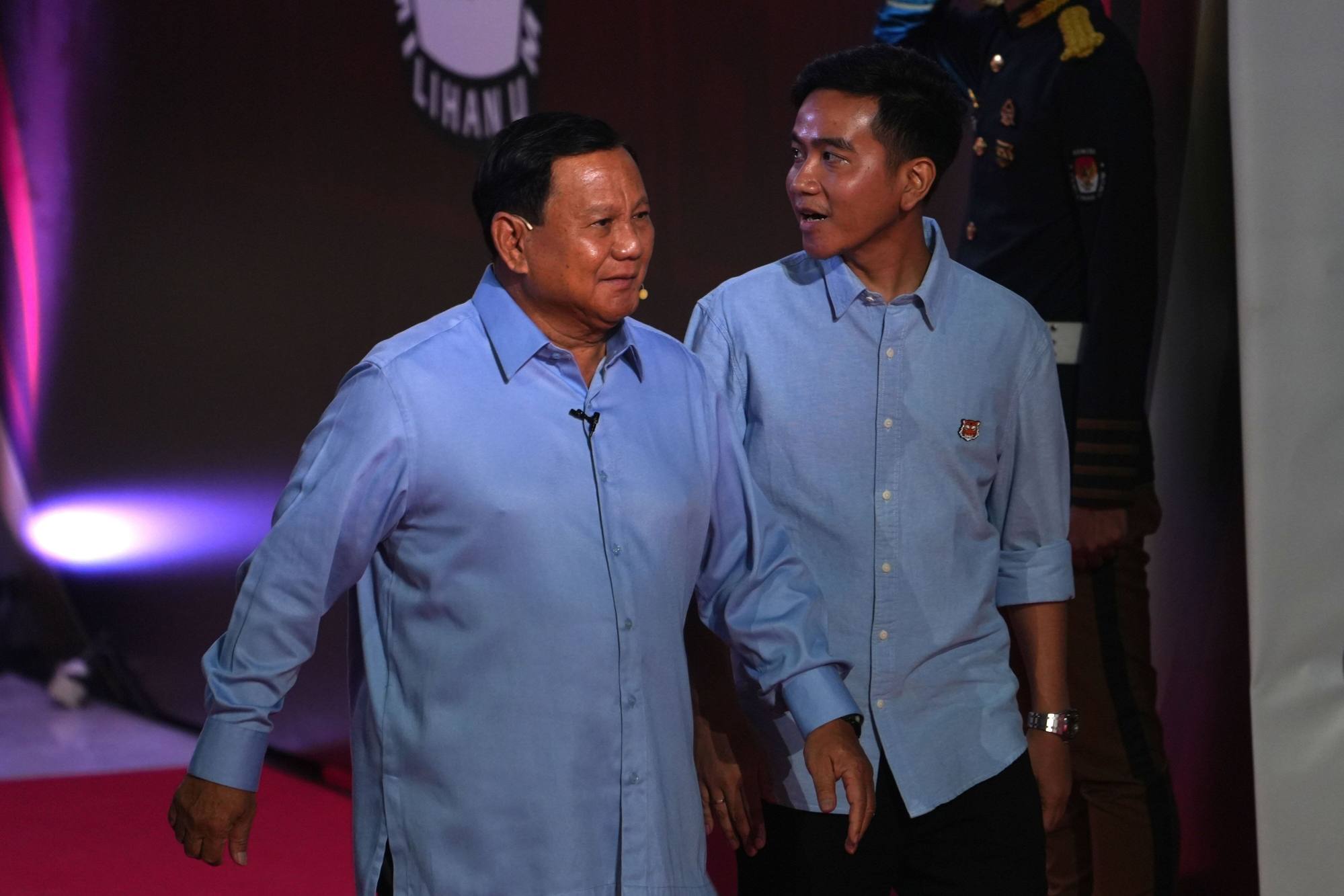
If Prabowo, the present defence minister, and Gibran triumph then “Indonesians will learn that those in power can do anything they want to keep that power,” mentioned Amalinda, who’s an affiliate professor at Gadjah Mada University’s division of politics and authorities in Indonesia.
“Things seem to have regressed … we have the established democratic institution, we have the constitutional court, but these are being used in different ways by political actors.”
Around 205 million of Indonesia’s greater than 270 million persons are eligible to vote this yr, in accordance with the election fee. Their youth – about one-third of voters are beneath 30 – has made social media a chief campaigning platform for all three candidates.
Prabowo still ‘ideal’ choice for most Indonesian voters despite Gibran’s gaffes
Prabowo still ‘ideal’ choice for most Indonesian voters despite Gibran’s gaffes
The newest polls present Prabowo and Gibran cementing their lead over Ganjar Pranowo and Anies Baswedan, with between 43 and 50 per cent of the vote forecast to go their manner.
If no set of candidates receives greater than the 50 per cent wanted for an outright win, Indonesia’s election course of will likely be prolonged by 4 months, with a second vote set for June 26.
[adinserter block=”4″]
[ad_2]
Source link